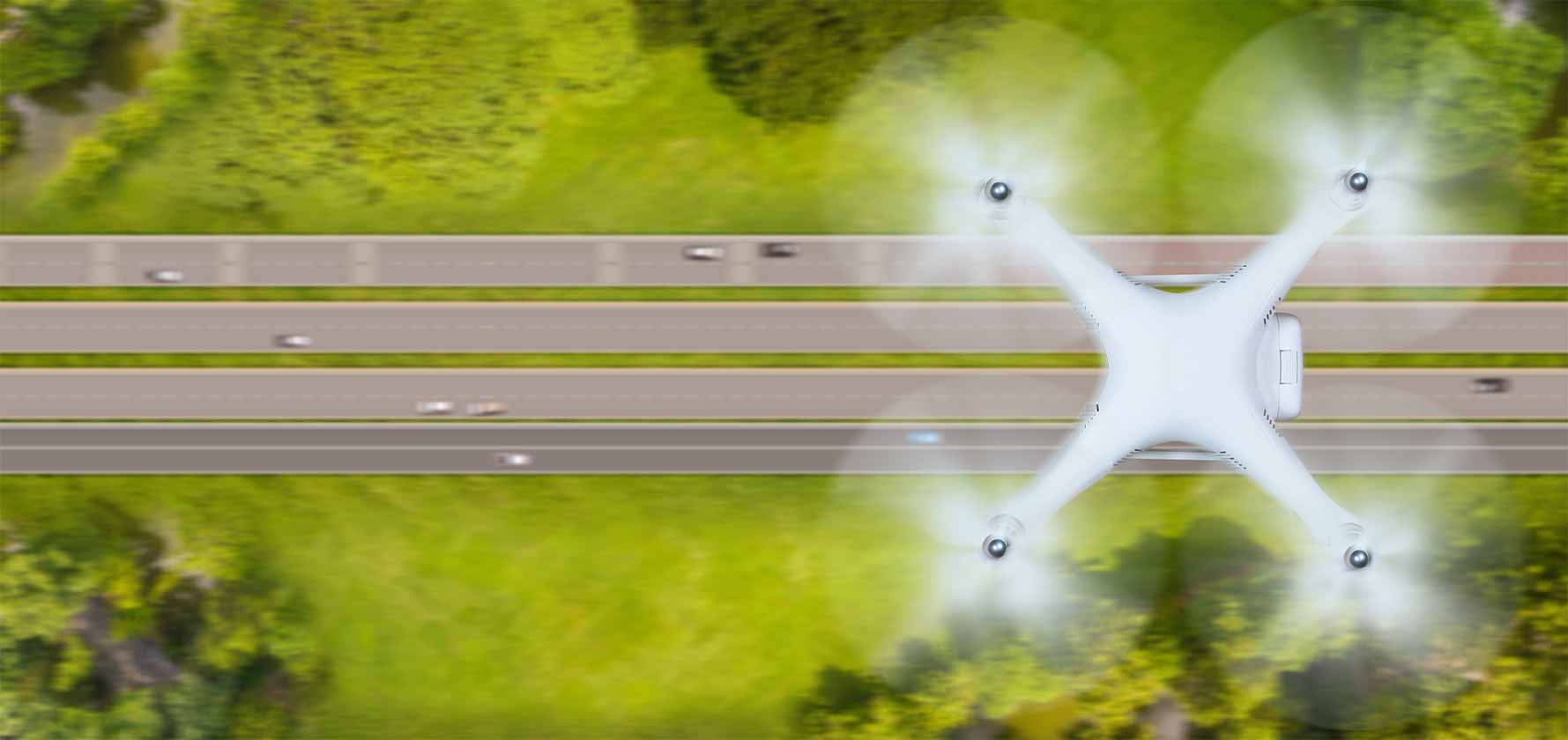
Horizontal, Ascending and Descending
Whether you want the fastest drone on the market or simply one that travels at or above a particular speed then you've come to the right place.
DroneVersus is comparing drones based on speed. This provides the ability to see any one drone in the context of a full array of drones. This unique perspective into drone speed provides one more valuable tool in researching drones.
Related: Compare drones by speed-to-cost ratio score
Everyone would love to zip around the skies from one place to another at breathtaking speeds. Flying a speedy drone puts you in the cockpit as you soar the skies like no other. However, with great speed comes great responsibility. Speed naturally affects the balance of control and requires a more skilled pilot to handle.
Drone racers are highly skilled at maneuvering their drones at top speeds. Many drones will limit their speed to ensure they can be controlled properly through GPS.
Another factor to consider when flying at high speeds is your picture quality. If you are trying to get a view of the land at top speed, you will have to slow down a bit.
Cameras that provide a higher picture quality tend to be heavier which, in turn, will reduce the overall achievable speed by the drone.
The goal of this speed comparison is to help you find the delicate balance that solves your purposes and has the right amount of speed for you is entirely possible on DroneVersus.
As with all of the comparisons on DroneVersus - this information has been derived by analyzing technical specifications provided by the manufacturer. This information is provided "as is" and is not guaranteed to be accurate in any way.
Speed is measured in Meters per second. (m/s)
In the drones listed DroneVersus has converted the speed provided by the manufacturer to meters per second. This provide a single comparable number that is shared amongst all drones. To put it into context: 20 m/s isDid you find a mistake? Are we missing a drone? We'd love to fix it. Please contact us let us know.
5 20 m/s |
 |
DJI Phantom 4 Pro V2.0 |
6 20 m/s |
 |
DJI Phantom 4 Pro |
7 20 m/s |
 |
DJI Phantom 4 Advanced |
8 20 m/s |
 |
Yuneec Mantis Q |
9 20 m/s |
 |
Yuneec Typhoon H Plus |
10 20 m/s |
 |
Yuneec Typhoon 4K |
11 20 m/s |
 |
Autel Robotics Evo |
12 19 m/s |
 |
DJI Mavic Air |
Many drones have techinical specification which indicate the speed at which it can climb. Listed here are Drones by climbing speed
5 5 m/s |
 |
DJI Mavic 2 Pro |
6 5 m/s |
 |
DJI Mavic 2 Zoom |
7 5 m/s |
 |
DJI Mavic Pro Platinum |
8 5 m/s |
 |
DJI Mavic Pro |
9 5 m/s |
 |
DJI Phantom 3 SE |
10 5 m/s |
 |
Yuneec Typhoon H |
11 5 m/s |
 |
Autel Robotics Evo |
12 4 m/s |
 |
DJI Mavic Air |
Furthermore a handful of drones haves specify the speed at which indicate the drone can descend. Listed here are Drones by descending speed
5 3 m/s |
 |
DJI Mavic Air |
6 3 m/s |
 |
DJI Mavic 2 Pro |
7 3 m/s |
 |
DJI Mavic 2 Zoom |
8 3 m/s |
 |
DJI Mavic Pro Platinum |
9 3 m/s |
 |
DJI Mavic Pro |
10 3 m/s |
 |
DJI Spark |
11 3 m/s |
 |
DJI Phantom 3 SE |
12 3 m/s |
 |
Yuneec Mantis Q |